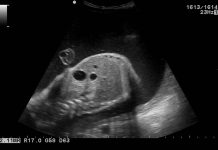Beckwith-Wiedemann syndrome (BWS) is a rare genetic disorder that affects infants and young children. This condition is characterised by overgrowth, specific physical characteristics, and an increased risk of certain health issues, including cancer. Understanding the causes and diagnosis of BWS is crucial for parents and healthcare professionals to provide appropriate care and support for affected babies. In this comprehensive article, we will delve into the signs and symptoms of BWS in babies, its causes, diagnosis, cancer risks, screening methods, and available treatments.
In This Article:
- Signs and Symptoms of Beckwith-Wiedemann Syndrome (BWS) in Babies
- Causes of Beckwith-Wiedemann Syndrome (BWS) in Babies
- Diagnosis of Beckwith-Wiedemann Syndrome (BWS) in Babies
- Cancer Risks and Screening in Beckwith-Wiedemann Syndrome (BWS)
- Treatment for Beckwith-Wiedemann Syndrome (BWS) in Babies
Signs and Symptoms of Beckwith-Wiedemann Syndrome (BWS) in Babies
BWS is a multisystem disorder that can manifest with various signs and symptoms in affected babies. Common features of BWS include macrosomia (large body size at birth), organomegaly (enlarged organs), macroglossia (large tongue), omphalocele (abdominal wall defects), ear creases or pits, and neonatal hypoglycemia (low blood sugar). Additionally, infants with BWS may have asymmetrical growth patterns and an increased risk of congenital anomalies.
The physical appearance of babies with BWS may exhibit certain characteristics, such as an enlarged tongue that may protrude from the mouth (macroglossia), an omphalocele (a type of abdominal wall defect that allows the abdominal organs to protrude through the belly button), and ear abnormalities like creases or pits. These distinct features, along with macrosomia and other growth abnormalities, are hallmark signs of BWS in infants.
Causes of Beckwith-Wiedemann Syndrome (BWS) in Babies
BWS is primarily caused by genetic and epigenetic changes that occur during early development. In approximately 85% of cases, BWS is sporadic, meaning it occurs randomly and is not inherited from the parents. However, in the remaining 15% of cases, BWS is inherited from a parent who carries a genetic mutation.
The most common genetic cause of BWS is the dysregulation of genes on chromosome 11p15.5. This dysregulation can occur through various mechanisms, including abnormal methylation patterns, uniparental disomy, and genetic mutations. These genetic changes disrupt the normal regulation of growth and development, leading to the characteristic features of BWS.
The majority of BWS cases are associated with epigenetic changes that affect a specific region of chromosome 11. These changes can lead to the overexpression of certain genes that regulate growth and development, resulting in the characteristic overgrowth and other symptoms of BWS.
Diagnosis of Beckwith-Wiedemann Syndrome (BWS) in Babies
Diagnosing BWS often involves a combination of clinical evaluation, genetic testing, and imaging studies. Healthcare professionals may suspect BWS based on physical signs such as overgrowth, abdominal wall defects (such as omphalocele or umbilical hernia), and an enlarged tongue (macroglossia). However, a definitive diagnosis usually requires genetic testing to identify specific genetic or epigenetic changes associated with BWS.
Genetic testing for BWS may involve DNA methylation analysis, chromosomal microarray analysis, and molecular genetic testing to identify mutations in specific genes. Additionally, imaging studies such as abdominal ultrasound or MRI may be used to assess internal organ abnormalities commonly associated with BWS, such as enlarged organs or tumours.
Early diagnosis of BWS is crucial for initiating appropriate medical management and surveillance. Babies diagnosed with BWS may require close monitoring for potential complications, including hypoglycemia, organ abnormalities, and an increased risk of childhood cancers. Furthermore, early intervention by a multidisciplinary team of healthcare professionals, including geneticists, paediatricians, and surgeons, can help address the specific medical needs of infants with BWS.
Cancer Risks and Screening in Beckwith-Wiedemann Syndrome (BWS)
One of the significant concerns associated with BWS is the increased risk of developing certain childhood cancers, particularly Wilms tumour (a type of kidney cancer), hepatoblastoma (liver cancer), and adrenal umors. Due to this heightened cancer risk, infants and children with BWS require careful monitoring and surveillance through routine screening tests, including abdominal ultrasounds, blood tests, and imaging studies.
Regular screening for cancer in children with BWS can help detect tumours at an early stage, when they are most treatable. Close collaboration with healthcare providers, including paediatric oncologists and geneticists, is essential to establishing an individualised surveillance plan based on the child’s specific risk factors and genetic profile.
Treatment for Beckwith-Wiedemann Syndrome (BWS) in Babies
Management of BWS in babies focuses on addressing specific symptoms and associated health issues, as well as monitoring for potential complications, including cancer. Treatment for BWS may involve a multidisciplinary approach that includes input from paediatricians, geneticists, endocrinologists, surgeons, and oncologists, among others.
For infants with BWS-associated hypoglycemia, prompt intervention with glucose monitoring and feeding regimens may be necessary to stabilise blood sugar levels. Surgical correction of certain physical anomalies, such as omphalocele or macroglossia, may be considered depending on the severity and impact on the child’s health and development.
Additionally, early intervention services, including physical therapy, speech therapy, and developmental support, can help address growth and developmental concerns in children with BWS. Regular follow-up appointments with healthcare providers are crucial to monitor growth patterns, assess for potential complications, and adjust treatment plans as needed.
In cases where children with BWS develop cancer, treatment may involve a combination of surgery, chemotherapy, and radiation therapy, depending on the type and stage of the malignancy. Close collaboration between paediatric oncologists and other specialists is essential to providing comprehensive care and optimising treatment outcomes for children with BWS-related cancers.
Conclusion
In conclusion, Beckwith-Wiedemann syndrome is a complex genetic disorder that requires careful monitoring, early intervention, and specialised care to address symptoms, risks, and associated health issues, including cancer. By understanding the signs and symptoms of BWS in babies, its causes, diagnosis, cancer risks, and available treatment options, healthcare providers and families can collaborate to provide optimal care and support for infants affected by this unique syndrome. By raising awareness about BWS and promoting early screening and intervention, we can improve the outcomes and quality of life for babies with this condition.
Sources:
- https://www.ncbi.nlm.nih.gov/books/NBK1394/#:~:text=Clinical%20Description-,Beckwith%2DWiedemann%20syndrome
- https://my.clevelandclinic.org/health/diseases/21993-beckwith-wiedemann-syndrome













